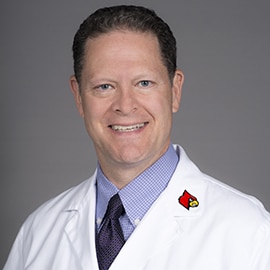
In recent media you have likely seen Hollywood star, Bruce Willis, come forward about his battle with aphasia. This unfortunate news brings to light a neurological condition that affects nearly two million Americans, with 180,000 new diagnoses each year.
What is Aphasia?
Aphasia is a neurological condition that impairs your ability to communicate, both verbally and non-verbally. This disorder can affect your speech, writing, and understanding of language altogether.
Aphasia commonly occurs suddenly following a stroke or head trauma but can also develop over a long period time. Degenerative aphasia may be a result of a slow-growing brain tumor or a neurodegenerative disease that causes gradual damage to the brain.
Symptoms and their severity levels depend greatly on the cause and condition of brain damage. Aphasia is considered an indication of another condition, like a stroke or tumor, so symptoms may vary by person. In many cases, aphasia symptoms are experienced in coordination with other cognitive issues like memory problems or general confusion.
People with aphasia may do the following:
- Speak in short or incomplete sentences, often not making sense.
- Speak unrecognizable words or sounds.
- Substitute one word or sound for another.
- Write sentences that do not make sense.
- Struggle understanding conversations.
Patterns of Aphasia
- Expressive aphasia – Often called Broca’s or non-fluent aphasia. People with this form of aphasia have a harder time speaking words than understanding others. They are likely to struggle forming complete sentences but can still convey a short message understood by listeners like: “Rain outside today.” Those with expressive aphasia are aware of their speaking difficulties and may become frustrated in conversation. A common symptom associated with this form is right-sided paralysis or weakness.
- Comprehensive aphasia – Also called fluent or Wernicke’s aphasia. People with this type of aphasia may confidently speak long sentences of incorrect or unrecognizable sounds or words. They do not realize others struggle understanding them and have great difficulty understanding words spoken to them.
- Global aphasia – This aphasia pattern results from extensive damage to the brain’s language networks. People with this type of aphasia experience great difficulty forming words and understanding language, often suffering from severe disabilities that prevent effective expression and comprehension.
When Should I See a Doctor?
Because aphasia is an indicator of a more serious neurological issue, it is critical to seek emergency care if you develop one of the following issues:
- Difficulty speaking or understanding speech
- Difficulty recalling commonly used words
- Problems with reading or writing
Once the initial cause of brain damage is addressed, aphasia can be treated with speech and language therapy. This may include relearning and practicing basic language skills or adapting new communication methods. Individuals can improve over time, especially with effective therapy treatment plans.
Temporary episodes of aphasia can occur due to severe migraines, seizures or transient ischemic attacks (TIAs). In these cases, aphasia can improve on its own without speech therapy. However, if you experience a TIA, you are more susceptible to having a stroke in the future.
Preventing Aphasia
The best way to prevent aphasia is to take precautions to avoid head trauma or reduce your chances of stroke. Head trauma is typically unpredictable, but you can protect yourself when riding a bicycle or motorcycle by wearing a helmet and wearing a seatbelt when in the car.
Here are a few tips to reduce your chances of stroke:
- Quit smoking
- Try to keep your blood pressure, cholesterol and blood sugar levels in a normal range
- Maintain a healthy weight through a balanced diet and physical activity
If you or a loved one are struggling with aphasia, seek immediate medical help to address the underlying cause. To learn more, schedule an appointment with your primary care physician today.









